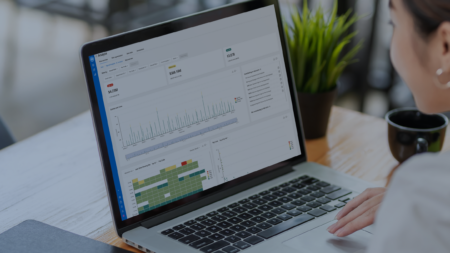PwC recently shared that in 2018 alone, 12 zettabytes of financial services industry (FSI) information was generated, but less than 0.5% was actually leveraged by businesses. This financial data explosion comes from an ever-increasing number of ERP and CRM systems employed by businesses and their partners, gathering and consolidating different payment, expense, inventory, and maintenance cost ledgers across the organizational landscape.
Contributing to this low rate of analytic engagement is the fact that current methods for analyzing financial data are slow; limited by time, capabilities and skill sets of the people and the software available to support the auditors and financial analysts.
Current analytics tools can’t keep pace
Let me illustrate this problem with a reasonably routine example. An internal auditor is asked to perform a risk analysis on a general ledger with five million rows. The Microsoft Excel limit for analysis is one million rows, preventing the auditor from using what is considered the world’s most popular analytical software. This means the auditor must engage their internal data analytics team, made up of specialized resources trained in the use of one the popular Computer Assisted Audit Tools (CAATs). This team in turn will write a script to perform the required analysis of the entire general ledger, or to save time, sample the data and attempt to extrapolate the risk.
The problem is, once the script work is scheduled and completed, the analysis might be too late for the audit process, or the priorities of the organization may have shifted to the point where the analysis is moot. If the team decided to use a sample and extrapolate the risk, they may have significantly less than a 100% risk analysis, putting the organization at risk.
It’s therefore no wonder that businesses are not making use of analytics; a world running on machine generated data, human-dependent analysis cannot keep pace.
AI enables analytics for all
This puts artificial intelligence (AI) front and center as the means of breaking this dependency on specialized resources and human-speed analysis. MindBridge is focused on developing the MindBridge Ai Auditor for auditors and finance managers to load financial data and analyze it on their own.
This allows auditors to bypass these specialized data science resources and tap directly into the power of their own data, effectively democratizing the access to financial analytics.
Microsoft CEO Satya Nadella shares that,
The core currency of any business going forward will be the ability to convert their data into AI that drives competitive advantage.
MindBridge is in complete agreement with Satya’s view, and I look forward to sharing more with you on this.





